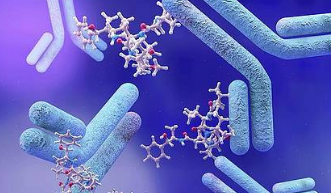Exosomes: Small Vesicles, Big Impact on Life

In recent years, the rapid advancements in precision medicine and biotechnology have ushered in unprecedented transformations in cancer treatment. Among these, exosomes, small extracellular vesicles secreted by nearly all mammalian cells, have emerged as a fascinating area of focus. Their unique biological properties and therapeutic potential have placed them at the forefront of cancer research, paving the way for novel treatment strategies.
What are exosomes? Exosomes, a subset of extracellular vesicles (EVs) measuring between 30 and 150 nanometers, originate from the cell membrane. They carry bioactive molecules such as DNA, RNA, and proteins, enabling intercellular communication and functional reprogramming of recipient cells.
This remarkable capability has made exosomes a rising star in cancer research, particularly tumor-derived exosomes (TDX). TDX not only promote tumor proliferation, metastasis, and drug resistance but also modulate immune cells to weaken the body's anti-cancer response.
Exosomes and the Tumor Microenvironment
The occurrence and progression of cancer are intricately linked to the tumor microenvironment (TME), a complex ecosystem comprising mesenchymal stem cells, cancer-associated fibroblasts (CAF), immune cells, and other components. Exosomes play a crucial role in this dynamic, influencing signaling pathways and material exchange within the TME to drive cancer progression.
For instance, researchers have demonstrated that delivering specific molecules via exosomes to the TME significantly enhances radiotherapy efficacy, achieving high tumor suppression rates. Additionally, exosomes loaded with anti-cancer drugs have been shown to cross the blood-brain barrier effectively, inhibiting glioblastoma growth. These findings highlight the immense potential of exosomes in cancer treatment.
Exosomes in Cancer Vaccine Development
Cancer vaccines have emerged as a vital research direction in addressing the global cancer challenge, and the application of exosomes in vaccine development has garnered increasing attention. With their antigen presentation and immune regulatory capabilities, exosomes offer a novel approach to cancer vaccine innovation.
For example, M1 macrophage-derived exosomes can enhance CTL responses, improving the efficacy of tumor peptide vaccines. Similarly, NK cell-derived exosomes exhibit cytotoxic effects, further augmenting the outcomes of immunotherapy. However, challenges such as exosome heterogeneity and the scalability of clinical production remain significant hurdles for their widespread application in cancer vaccine development.
Currently, exosomes have achieved promising preliminary results in cancer diagnosis and treatment. For instance, specific genes or proteins in exosomes have been identified as diagnostic and prognostic biomarkers for lung cancer. In breast cancer patients, the expression levels of exosomal miRNA have shown strong correlations with lymph node metastasis and clinical staging.
Exosome research is advancing rapidly, offering a new perspective on understanding cancer progression while providing innovative tools for treatment. Although significant challenges remain, the potential of exosomes in cancer vaccine development brings renewed hope to global cancer therapy. As research continues, exosomes are poised to play a pivotal role in precision oncology, contributing to humanity’s efforts to conquer cancer.




